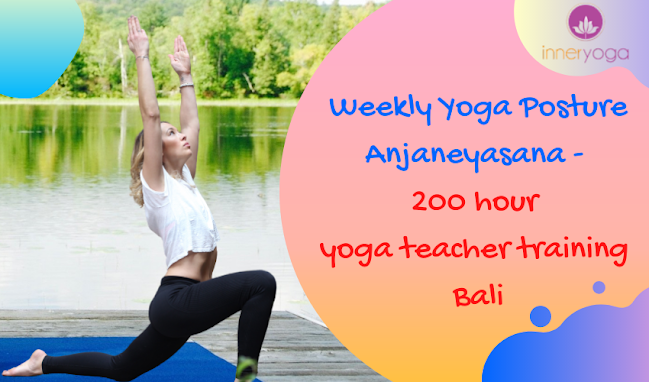Finding Balance in Yin – Yang
Everyone these days is looking for ways to achieve and maintain optimum health and lead a fulfilled life. As a way to achieve this, we can look to the ancient Taoist concept of Yin-Yang. According to this ancient Chinese philosophy, Yin-Yang is a concept of dualism, explaining how seemingly opposite or contrary forces are actually complementary and interconnected. They are interdependent in both the natural world and in the human body and how they interrelate determines if the world around us, including our relationships, and our health are in balance and harmony or not.
Yang is more dynamic and active energy – it helps us to accomplish and achieve goals and be motivated while Yin is a quieter, softer and more inward energy. If you think about it in terms of the natural world then the rising sun would be the Yang part of the day – the energy that gets you out of bed and motivated for the day ahead. As the sun starts to set, we come into the Yin part of the day and we slow down, become less active and prepare our mind and body for rest. Or at least that’s what the ideal would be!
How many of us though go to bed with our phones still on scrolling through social media, answering texts and emails and then find we can’t sleep? By doing this we are keeping ourselves in a Yang mode when we are actually in a Yin part of the day. We’re fighting against the natural energy flow. We don’t allow ourselves the quiet and stillness needed to be able to rest and recuperate and this is what brings us out of balance. We are then tired the next day so use stimulants and sugar to give us energy but we’re actually using and draining our reserves. Yin-Yang is a cycle; a balance and if we ignore it, we can become stressed, burnt out, exhausted which can lead to poor diet choices, health issues and an in-balance in our natural energy.
Yin-Yang and Yoga
It is this in-balance in so many people’s lives that led us to design a Yin Yang yoga teacher training as a way to bring people back to a more balanced state. So how does the idea of Yin-Yang apply to your yoga practice? Each style of yoga has either a more Yang or Yin quality to it – Vinyasa Yoga, for example, would be a Yang practice while meditation and Yin Yoga would be balancing Yin practices. It’s about knowing which type of practice you need in order to balance the Yin-Yang in your body and our 200 hour yoga certification course gives you the tools to be able to manage this in your daily life.
Say you’ve had a really stressful day – you rushed to work, had some issues at work, rushed home stressed and were feeling exhausted at the end of the day. All you want to do is curl up but you “push” yourself to go to a 90-minute Vinyasa class. While you may feel a temporary buzz, you could actually be depleting your natural energy reserves because actually what your body needed was a quiet, still, Yin Yoga practice where the Parasympathetic Nervous System would be stimulated (our rest and digest state). Similarly, if you’ve been chilling all day, maybe not talking much then a Vinyasa class might be more beneficial for you than a Yin Yoga class.
Society tells us that if we’re not doing and being active then we’re not productive so we can end up doing the opposite of what we actually need.
Our yoga teacher certification is focused on always trying to maintain this careful balance between the two energies. If we go too far out of balance – either too Yang or too Yin then this is what can lead to disease.
Understanding the connectivity of Yin and Yang
As we’ve mentioned Yin energy has qualities of contraction, introversion, stillness, femininity and is alkaline.
Yang energy has qualities of expansion, expression, brightness, masculinity and acidity.
If a person is too Yang, overactive, overstimulated with social media, stressed at work, doing excessive exercise, sex and using stimulants like caffeine, energy drinks and drugs then this can lead to excessive heat and inflammation in the body. This heat and acidity will burn the body out. This can then lead to hypo-metabolism with lowered thyroid and adrenal function.
This is why balancing your activity (Yang) with rest (Yin) is essential in creating a balanced and healthy life.
Yin deficiency PHYSICAL health symptoms include:
- Dry skin, hair, throat and eyes
- Night sweats and difficulty sleeping
- Tight and aching muscles
Yin deficiency EMOTIONAL health symptoms include:
- Irritable, unsettled and unable to relax
- Feelings of frustration and anger
Yang deficiency PHYSICAL health symptoms include:
- Lethargy and excessive tiredness
- Low sexual libido
- Coldness in the body, especially feet and hands
Yang deficiency EMOTIONAL health symptoms include:
- Demotivated and a sense of hopelessness
- Fearful and unable to cope
If you’re interested in delving further, the Inner Yoga Training 200 hours yoga certification 2020 is designed to incorporate both Vinyasa (Yang) and Yin practices. We also learn about Traditional Chinese Medicine to better understand a way towards optimal health. We are passionate about teaching the importance of the Yin-Yang balance leading to a healthy mind-body balance.




Comments
Post a Comment